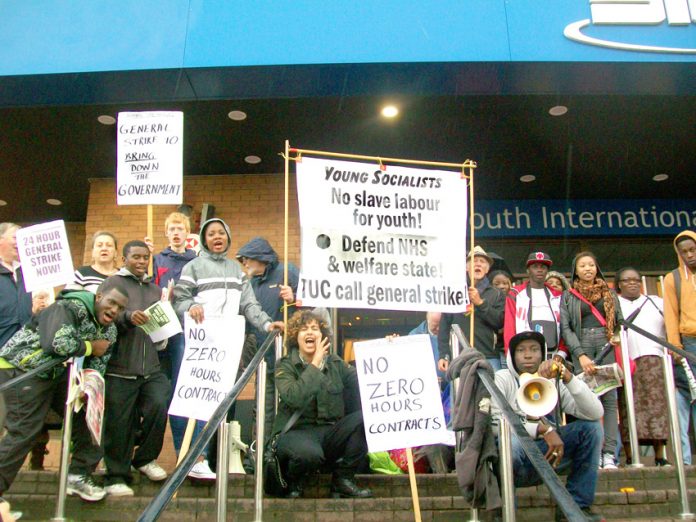
THE High Court has declared the Jobseekers (Back to Work Schemes) Act 2013 incompatible with the right to a fair trial guaranteed by Article 6(1) of the European Convention of Human Rights.
It granted a declaration of incompatibility of the primary legislation with the right to a fair trial after a damning assessment of the Department of Work and Pensions’ interference in ongoing cases.
The consequences of the judgment are that all those who have appealed against a benefit sanction on the basis of the previous Reilly and Wilson case decisions will be entitled to win their appeals and be repaid the withheld benefits.
Phil Shiner, a solicitor at Public Interest Lawyers, said yesterday: ‘This case is another massive blow to this government’s flawed and tawdry attempts to make poor people on benefits work for companies, who already make massive profits, for free.
‘Last year the Supreme Court told Iain Duncan Smith and the Coalition government that the scheme was unlawful. In this case the High Court has now told the government that the attempt to introduce retrospective legislation, after the DWP had lost in the Court of Appeal, is unlawful and a breach of the Human Rights Act and is a further disgraceful example of how far this government is prepared to go to flout our constitution and the rule of law.
‘I call on the DWP to ensure that the £130 million of benefits unlawfully withheld from the poorest section of our society is now repaid.’
Following a challenge to the government’s emergency, retrospective legislation introduced to remedy mistakes made by the DWP in its ‘Back to Work’ scheme, the government’s argument that the retrospective Act was compliant with the Convention has been shown to be wrong and its arguments deeply flawed.
In a detailed and critical decision, Mrs Justice Lang considered a challenge brought by Caitlin Reilly and Daniel Hewstone against the 2013 Act following a ‘series of misjudgments by the DWP’.
In a previous case, brought by Public Interest Lawyers on Reilly’s behalf, the Court of Appeal had ruled that the regulations introducing back-to-work schemes (the 2011 Regulations) – and sanctions for failing to take part in or meet requirements of the schemes – were unlawful and should be quashed.
Before the Secretary of State’s own appeal was heard (and ultimately dismissed) by the Supreme Court, the 2013 Act was rushed through Parliament in three days. This was without full or proper consultation, in order to retrospectively validate the regulations as well as sanctions imposed on benefit claimants under that regime.
This effectively won the appeal for the Secretary of State before it was considered by the Supreme Court – the Judge referred to this as a ‘foregone conclusion’.
It also determined thousands of pending appeals in statutory tribunals in favour of the Department of Work and Pensions.
The 2013 Act introduced a new ‘draconian provision, unique to this cohort of claimants’ which was ‘not explained or justified’ by the government in Parliament ‘at the time’.
The judge also recognised that it would be ‘unjust to categorise the claimants as in Reilly No 1 as claimants “who have not engaged with attempts made by the state to return them to work”.’
The Secretary of State has asked for permission to appeal the judgment.
• The Public and Commercial Services union welcomed yesterday’s High Court ruling that retrospective legislation in the Cait Reilly Poundland case was unlawful.
The union, which represents the vast majority of jobcentre and benefits staff, says it is further evidence of how ministers are going to extraordinary lengths to turn the screw on people entitled to social security.
The union fully supports Cait Reilly and the other claimants in the case and lobbied MPs at the time to vote against the retrospective regulations.
PCS general secretary Mark Serwotka said: ‘How much more court time is the government going to take up and how much more of our money is it prepared to spend defending the indefensible?
‘The fact ministers are still fighting this is indicative of the cruelty and arrogance at the heart of this government’s approach to social security and its treatment of unemployed people.’